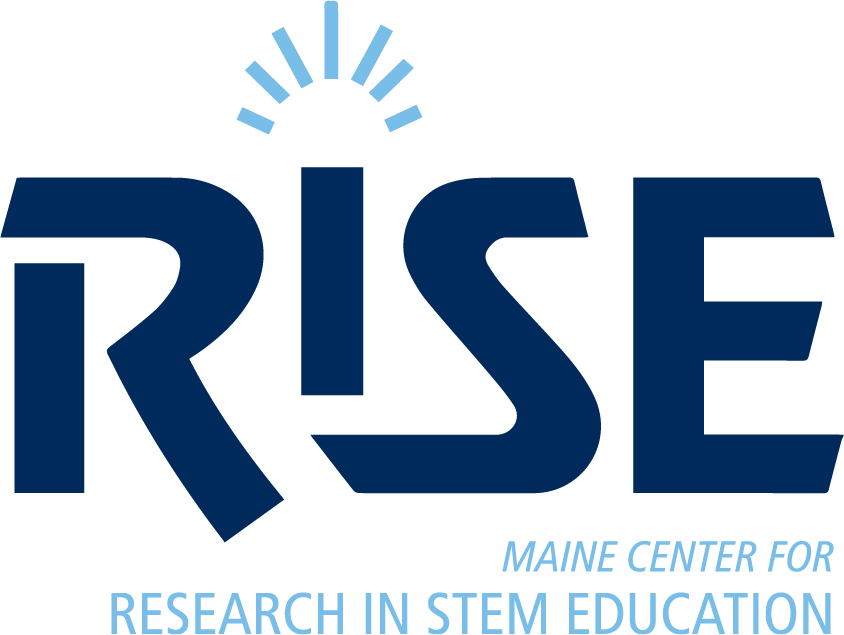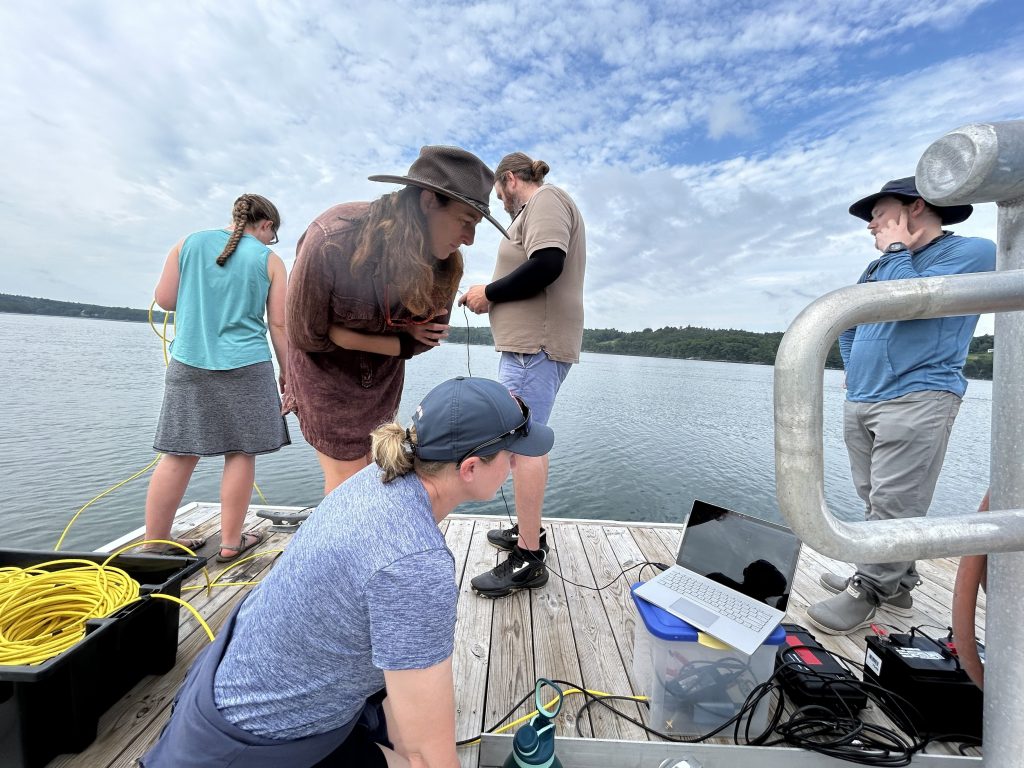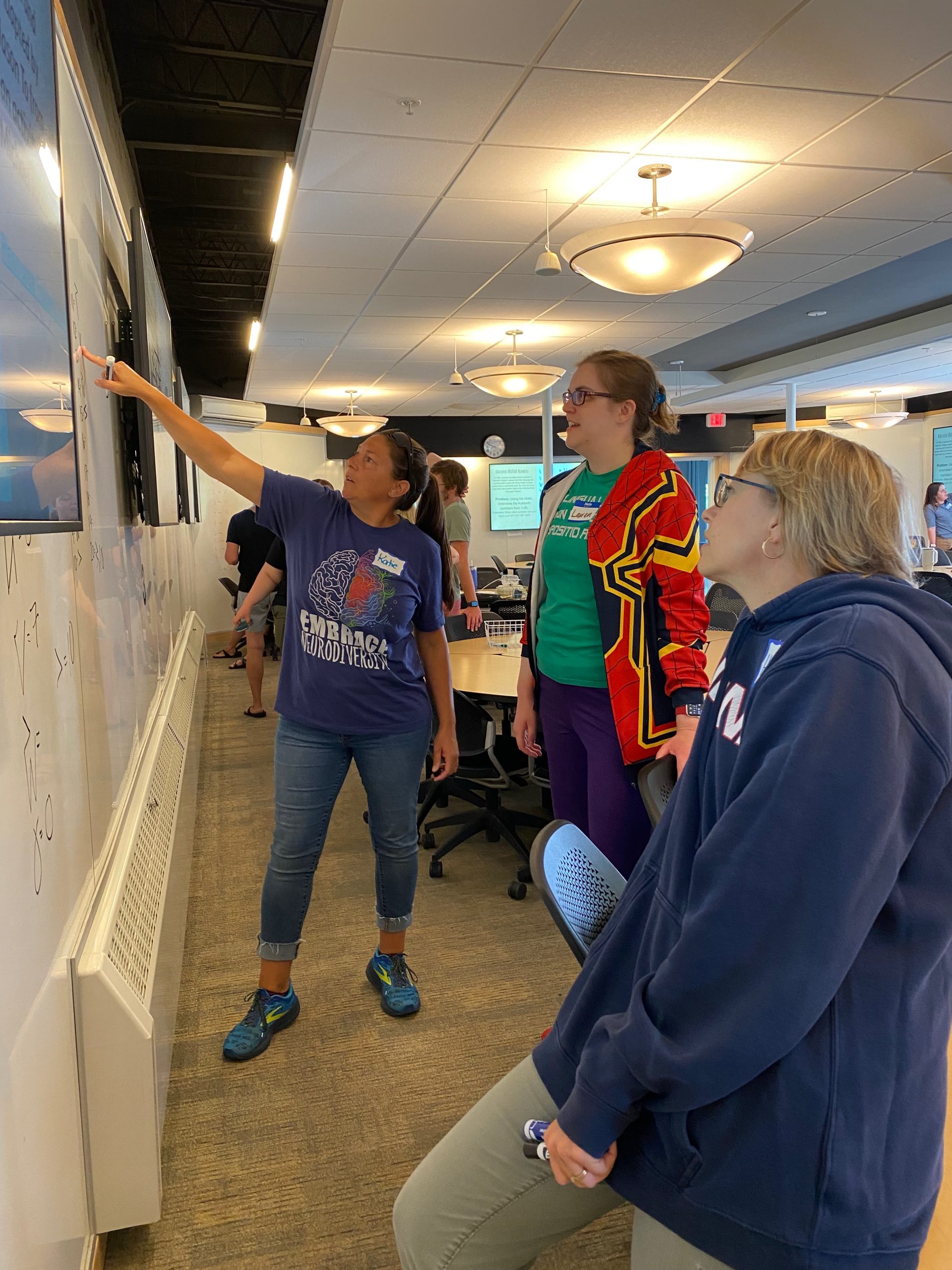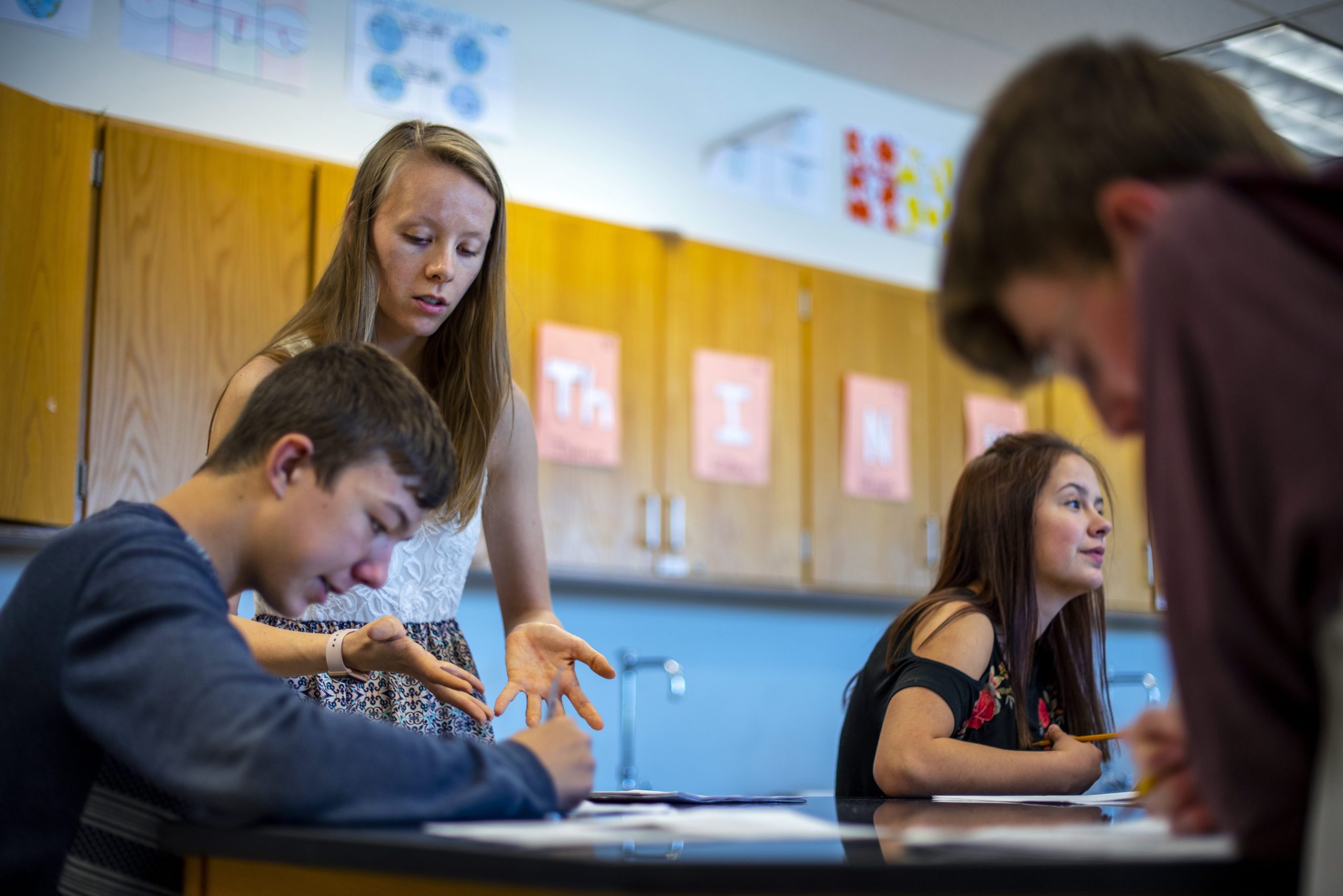Programs
The RiSE Center provides and supports numerous opportunities for graduate education, professional learning, STEM education improvement, and learning communities for PK-16+ STEM educators.

These initiatives provide opportunities for students, educators, and researchers to engage in collaborative learning, professional development, and innovative teaching practices. Sustained through the RiSE Center’s commitment to education and research, these programs continue to evolve to meet the needs of the communities they serve.
Learn more about these RiSE Programs:
Maine STEM Partnership
- Research Practice Partnerships: focused on implementation of research-guided practices in STEM classrooms at all grade levels
- Classroom Instructional Resources: research-supported, community-vetted instructional resources and materials kits
- Professional Learning Communities: statewide content discussions, assessment for learning, productive talk, and more
- Annual Summit: convenes our larger community to celebrate the previous year and discuss current topics in STEM education

RiSE Teaching Fellowship
The RiSE Center supports early-career science and mathematics teachers in middle school and high school classrooms across the state through teaching fellowships funded by the National Science Foundation Robert Noyce Teacher Scholarship Program and private donations.
“I love the fellowship and the people in it. I feel that we have connected as a community, and as a result the meetings are productive. I feel extremely supported.” —NSF Teaching Fellow
“The conversations at the meetings have been valuable and the work we are doing together has immediate use in the classroom. Even as a mentor I am growing and learning as a professional during my time with the NSF Fellows.” —NSF Teaching Mentor
Teaching fellowships were awarded to twenty one pre-service teachers to support their successful transition to effective classroom teachers. In order to accomplish this, the RiSE Center brought together fellows and experienced leading teachers who serve as mentors. This group has grown into a cohesive, collegial community that has continued beyond it’s original funding.
Fellows, mentors, and RiSE Center staff meet regularly online and in person to continue to expand their instructional skills and share common areas of STEM education research.

Each year teaching challenges, current needs, and desired topics are evaluated and become the shared work of the community. Working groups are formed around these topics to discuss and brainstorm solutions.
These smaller groups of teachers actively engage in research: trying out ideas in their classrooms and bringing that experience back to the groups. Successes and strategies are then shared with the broader teaching community.
For more information, please contact:
Beth Byerssmall
NSF Teaching Fellowship Program Coordinator
elizabeth.byerssmall@maine.edu
207.581.4674
Maine Learning Assistant Program
The Maine Learning Assistant (MLA) Program aims to strengthen instruction and learning outcomes in undergraduate science, technology, engineering, and mathematics (STEM) courses. The program is a part of the Learning Assistant Alliance, an international collaboration with over 550 member institutions. The MLA program is modeled after the highly successful program developed at the University of Colorado Boulder. The program began in 2012 under a large grant awarded to the RiSE Center through the National Science Foundation’s Math and Science Partnership program. Due to the demonstrated effectiveness of the MLA program, it is now funded through the University of Maine.
MLAs serve as peer instructors, facilitating group work and assisting faculty as they transform their course to incorporate more interactive-engagement and student-centered instruction. MLAs learn to use innovative, research-based instructional strategies, develop relevant pedagogical skills, deepen their content understanding, and have the opportunity to explore their interest in STEM teaching, while participating in a vibrant community of peers and faculty.
Program Statistics
58,800
Students impacted by MLAs
1,390
MLA positions since 2012
93
Instructors have participated in the MLA program
Goals of the MLA Program
- improve the quality of undergraduate STEM education,
- promote and support evidence-based teaching,
- help STEM majors build career-relevant teaching and communication skills, and
- encourage institutional change at all levels of STEM teaching.
For students interested in becoming an MLA or for more information check out our MLA Program – Students page!

Impacts of MLA Program
A virtual poster session was held at the June 2021 RiSE Conference in which STEM instructors presented posters about their course modifications and impacts. Please feel free to take a look at posters from the 2021 RiSE Conference Faculty Poster Session.
